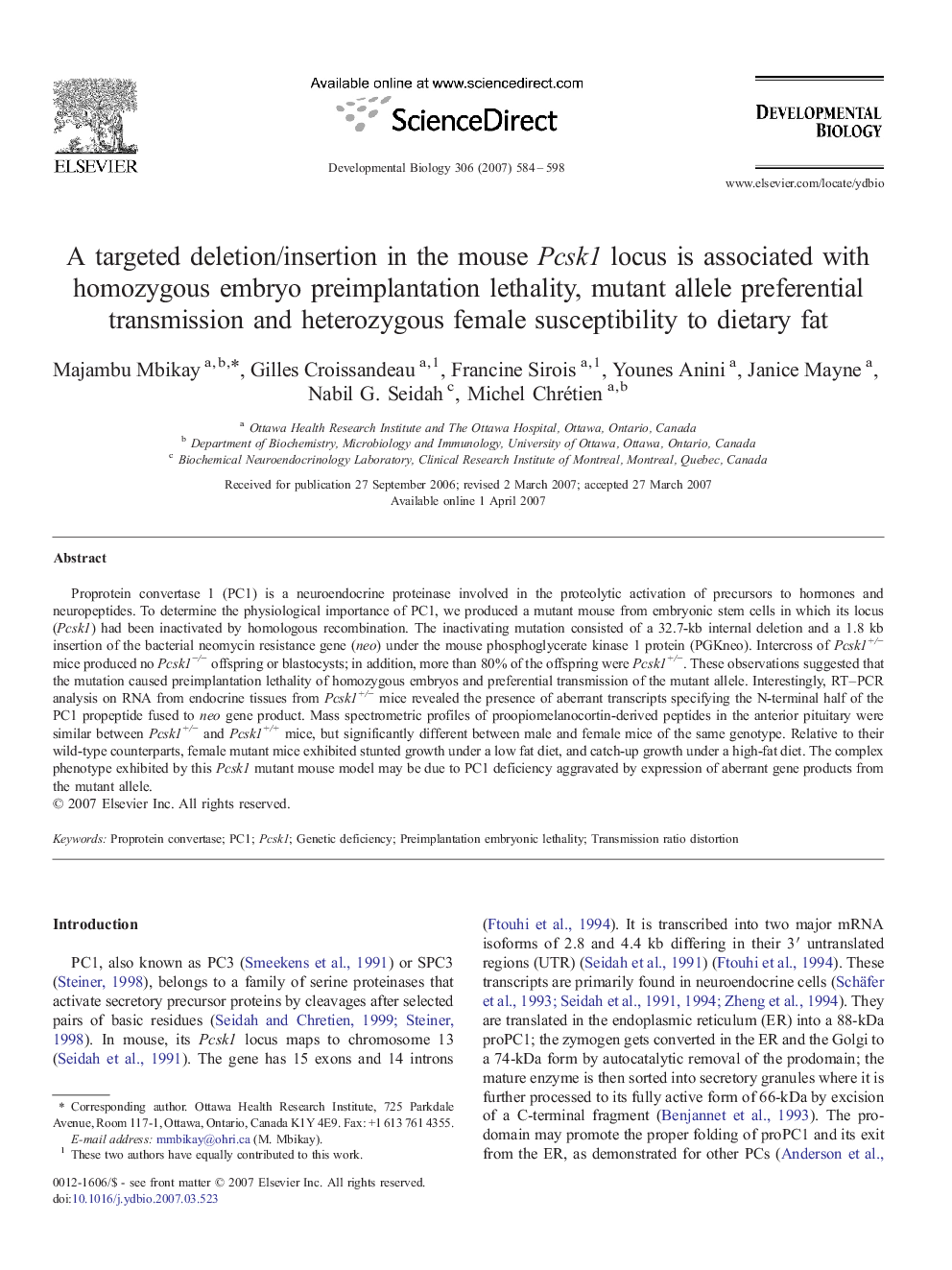| کد مقاله | کد نشریه | سال انتشار | مقاله انگلیسی | نسخه تمام متن |
|---|---|---|---|---|
| 2175229 | 1093834 | 2007 | 15 صفحه PDF | دانلود رایگان |

Proprotein convertase 1 (PC1) is a neuroendocrine proteinase involved in the proteolytic activation of precursors to hormones and neuropeptides. To determine the physiological importance of PC1, we produced a mutant mouse from embryonic stem cells in which its locus (Pcsk1) had been inactivated by homologous recombination. The inactivating mutation consisted of a 32.7-kb internal deletion and a 1.8 kb insertion of the bacterial neomycin resistance gene (neo) under the mouse phosphoglycerate kinase 1 protein (PGKneo). Intercross of Pcsk1+/− mice produced no Pcsk1−/− offspring or blastocysts; in addition, more than 80% of the offspring were Pcsk1+/−. These observations suggested that the mutation caused preimplantation lethality of homozygous embryos and preferential transmission of the mutant allele. Interestingly, RT–PCR analysis on RNA from endocrine tissues from Pcsk1+/− mice revealed the presence of aberrant transcripts specifying the N-terminal half of the PC1 propeptide fused to neo gene product. Mass spectrometric profiles of proopiomelanocortin-derived peptides in the anterior pituitary were similar between Pcsk1+/− and Pcsk1+/+ mice, but significantly different between male and female mice of the same genotype. Relative to their wild-type counterparts, female mutant mice exhibited stunted growth under a low fat diet, and catch-up growth under a high-fat diet. The complex phenotype exhibited by this Pcsk1 mutant mouse model may be due to PC1 deficiency aggravated by expression of aberrant gene products from the mutant allele.
Journal: Developmental Biology - Volume 306, Issue 2, 15 June 2007, Pages 584–598